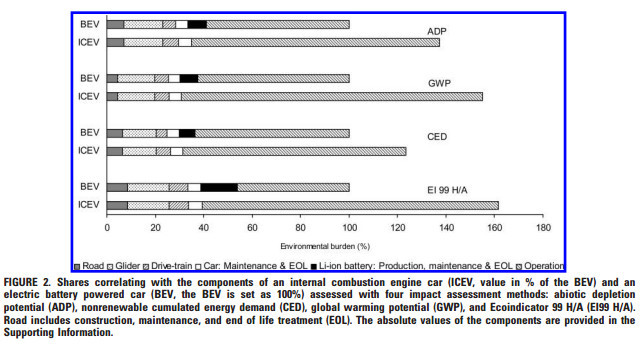The keyword is drive. And drive is for people who transport goods or people. That is why you need a drivers license. Travel is what you mean. By which is what the Supreme Court says you do not need a drivers license to travel in an automobile. And I am beginning not to give a crap about forum rules on political decisions. As it has superseded it self in technology.
You haven't cited a single paper. Tip: YouTube videos and Wikipedia doesn't count.
You have to back up your claims with research. Actual research, not some person's opinion piece.
Threads like these are always the same almost everyone speaks their 'facts' with no facts to back them up except their own words or some site that 'interprets' facts to suit there needs. There's a reason those sites don't link to research and it's usually because the research isn't saying what they want it to.
State facts, and the scientific sources of your facts if you want this to be a fact based discussion. Otherwise it's just people's opinions.
I am assuming you do not know diddly squat about how automobiles work. And will not hold it against you. As the main point of this thread was to make a point. And not a scientific comparison.
If you're going to include the manufacturing impact & cost of making electric vehicles, do the same for diesel/petrol vehicles. Have a look at this chart and referenced article:
Bear in mind that this chart leaves out the fuel extraction costs on impacts for ICEV since both ICEV and BEV may share that in common depending on the energy source used at the power station. This is worse for ICEV's always since they always depend on oil, but BEV's may be using energy produced from renewables or nuclear even.
ICEV = Internal Combustion Engine Vehicle
BEV = Battery Electric Vehicle
Contribution of Li-Ion Batteries to the Environmental Impact of Electric Vehicles
You will soon discover how energy intensive casting engine blocks can be.
Then include the costs of mining iron ore and the minerals for manufacturing steel. Then include the costs of melting the materials. Then include the shipping costs and emissions due to the distributed nature of most globally automobile manufacturers. Also include the full mass cost of a system for converting liquid fuel to usable energy vs stored electric energy to usable energy. Also think about the entire process of getting oil/gas from a well, pumping it, processing it, shipping it etc.
Then assess the impact these vehicles have after spending several hundred thousand miles on the road and running at dog dirt inefficiencies after long use. Then the cost of scrapping them.
Converting liquid fuel to kinetic energy in an ICE is about 30% efficiency at it's peak. That is under the most ideal driving conditions at pretty high speeds. Then there's gearbox, assorted drive and wheel losses.
A GE gas turbine is easily on the order of 60% efficient converting LNG to usable energy and does so at all times.
Then there's the reason most trains are electric rail or diesel electric. Most Internal Combustion engines when operating in direct drive of a vehicles wheels via any gearbox cannot run at peak efficiency (which is low anyway) by combining an IC engine with an electric generator you can extract much more energy from the fuel even with the minor conversion losses by having the IC engine run at peak efficiency at all times. Direct Electric wheel drive allows these vehicles to then achieve a near 60% efficiency at wheel output power. You effectively become a mobile power plant, this again has issues though since you're hauling all that mass of your power plant along. Electric rail goes one up above that and leaves the power plant stationary. Thus increasing efficiency even further
And we haven't even considered the full system energy cost, also known as "well to wheel" efficiency.
If we apply this to electric cars, and do the math you will also soon realize that by producing the power at the power station of choice at high thermal efficiency (nuclear, wind, coal whatever you fancy) transmitting it through the powerline, using it to charge a battery and the outputting this power to the wheel via electric drive, we still have less losses than an IC engine used to drive a vehicle at variable load and efficiency.
Have a look at this stanford page for a simple version of the math invloved to calculate battery charge cycle across the entire system. http://large.stanford.edu/courses/2010/ph240/sun1/
![]()
Even accounting for all that, the efficiency for en EV is at about 45%, 15% higher than an ICE driven vehicle at peak efficiency. There's a reason a lot of heavy mining equipment and trains etc are EV's.
Now consider that Batteries as they currently are, are not anywhere near the energy density of liquid fuel
- Petrol: 34.2 MJ/L (Specific Energy: 46.4 MJ/Kg)
- Diesel: 35.8 MJ/L (Specific Energy: 48 MJ/Kg)
- Non-rechargable lithium battery: 4.32 MJ/L (Specific Energy: 1.8 MJ/Kg)
- Li-Ion Battery: 0.9 – 2.6 MJ/L (Specific Energy: 0.36–0.87 MJ/Kg)
As a fun fact:
A single potato chip weighing 2g contains on the order of 60x more chemical energy than a lithium battery, but it's very slow to extract. Human digestion is very efficient but so slow.
Nothing else except for things such Thorium and Uranium exceed the current energy density for petrol & diesel as of now. And the mass cost of extracting those is incredibly high that makes them wholy unsuitable as mobile power plants, except for in very big systems such as submarines and ships.
* Thorium: 929 Million MJ/L
* Uranium: 1,5 Billion MJ/L
But now consider the cost of fuel vs the cost of electric energy. If you are able to get more energy in terms of electricity to fuel ratio for less money why wouldn't you?
Additional Sources:
- http://evbatterymonitoring.com/webhelp/section_3.htm
- http://large.stanford.edu/courses/2010/ph240/veltman2/
- http://www.trybrid.org/trimaran/about-2/how-does-diesel-electric-save-fuel/
- https://marine.man.eu/docs/librariesprovider6/marine-broschures/diesel-electric-drives-guideline.pdf
- https://xtronics.com/wiki/Energy_density.html
- https://energy.gov/sites/prod/files/2015/06/f23/es229_gaines_2015_o.pdf
PS: I worked with the energy sector. However having looked at your prior comments and comment history I am not going to be able to convince you otherwise anyway. I fully expect you to reject facts at this point.
I remember seeing the car batteries efficiencies sheet when I was learning my automotive trade. And laughed so hard I thought that electric cars were a ponzy scheme. The only thing that made electric cars a viable option. Is if they had regenerative braking or solar panels. I think that was the year the Bugatti Veyron went 315mph on the Nuremberg Ring.
Have the courage to diversify your skillset beyond just ICE vehicles, you may not like them or fully understand all that goes into them as yet, but with with discipline and industriousness and above all perseverence you shall be able to find the truth.
A mechanic that can work on ICE vehicles is good, one that can work on ICE and Electric Vehicles is a rarity. Like em or not, it's extra work, which means extra income and job security if ever the EV's take over 
Just imagine an IT guy who only understood how to use IBM z/OS. But nothing about Windows, Linux or Mac OS X.
Ah yes the super reputable "ontario-wind-resistance.org" website...
"As soon as they went up and got running, my blood pressure went up. My wife has migraine headaches and suffers from depression. My daughter suffers from depression," Levesque says.
Sounds really scientific. About as scientific as those people that complain WiFi signals are giving them migraines. I get that people might be opposed to wind farms obstructing their view of the scenery. Sure. But more and more investments are being made to place wind farms off-shore so this should become less of an issue.
Diesel cars in general are actually really, really bad for the environment. The UK government are actually considering paying diesel car owners to scrap their cars, it's getting that bad. VW didn't help in deceiving testers in the emissions scandal.
Yes, producing any vehicle is going to require natural resources and produce a bunch of CO2. And yes we can't replace every single car with electric cars if we don't have the available resources, but that would be the same with pretty much any alternative. But the reduction in transport on the roads just for moving fuel around to petrol stations ("gas pumps") etc. and the reduction in unclean emissions on the roads in dense cities would far outweigh initial costs in production I would imagine. Not to mention that as battery technology improves, hopefully electric cars can simply have replacement batteries and outlive their petrol counterparts.
And now the solar panel thing is already on its way in Tesla cars. Makes sense seeing as the roof of the car is going to soak up a bunch of sun for most of the day, even if parked outside.
No diesel engines are not really bad for the environment. Diesel fuel is really bad for the environment. Biodiesle is just a what you get when you convert used cooking oil. Although low compression diesel engines and just used vegetable oil. Not cooking oil made from animals. Hence vegetable oil can run in engines straight out of the barrel without the need of processing.
How is a fish hook bait if there is no bait on it? Shit I took the bait!
Even if using and making an electric car prduces as much CO2 as a petrol/diesel one in cities is much better drive an electric car because you're effectively reducing the CO2 concentrated in a "small" area like a city.
Diesel is a horrible polluting engine and the argument isn't just about the amount of C02. N0x for example is a much more dangerous gas than C02 and diesel engine particulate pollution is horrendous. If we didn't already have the internal combustion engine and I was to invent it today, I'm sure most of the world today would shun the idea and rightly so.
The way I see it is we need to move as much fright as possible onto electrified rails and people into electric cars. The electricity to achieve this must come from nuclear power stations. No other type of power generation comes close. However I think we need to take a look at the type reactors we currently have. From what I understand we currently use bomb factories and power generation is an after thought. The original idea for nuclear power was to produce electricity (domestic) so cheap that it wouldn't be worth metering. If one nation managed this the rest of the world demand the same and the endless loop of moronic alternative energy consumption arguments and watt counting lifestyle would go away.
Biodiesel is diesel fuel made from vegetable oils, animal fats, or recycled restaurant greases. It's safe, biodegradable, and produces less air pollutants than petroleum-based diesel. Biodiesel can be used in its pure form (B100) or blended with petroleum diesel.
Also you can make essential oils from it and soap as well. So their is more than just one use for it.
We can't produce biodiesel or any other biofuel at a scale anywhere close to the demand, and the last thing we need are more diesel powered cars and soap.
Biodiesel might as well be called unicorn tears. It's just another alternative energy that makes zero sense for the world.
Recycled unmodified used vegetable oil is you are so picky then.
I'm not picky, the numbers simply don't add up and never will.
Please explain as it lacks context.
If you can source and refine used oil that's great, but what about the rest of the state or nation or world? The production is also using electricity and requires a lot of chemical separation so you still have a chain of pollution and load of waste products.
Simply plugging in a electric car and charging from a grid is a better option. Biodiesel can only supply a very limited number of cars and used oil even less. Biodeisel production on a micro level is also a horribly time and energy consuming task.

